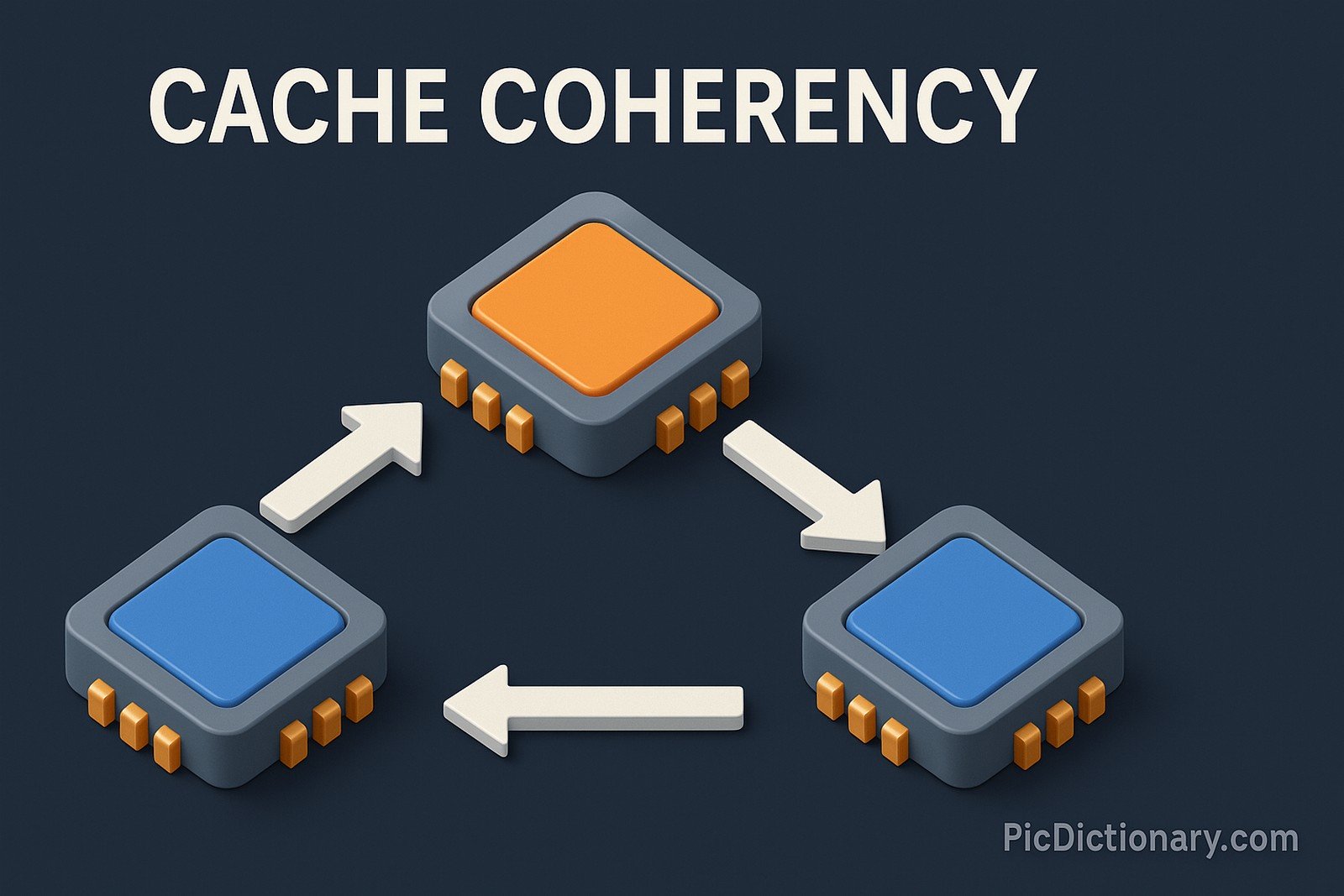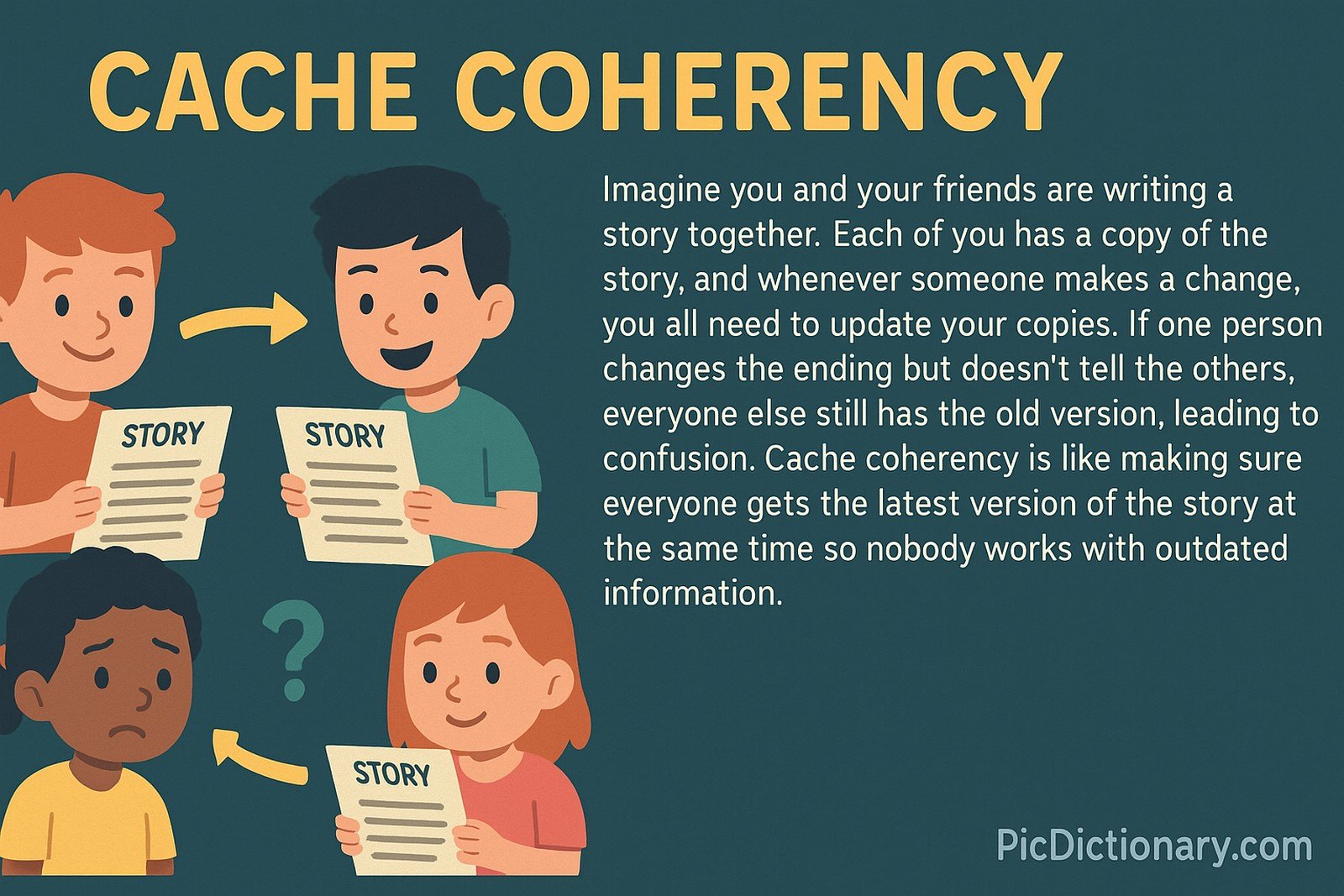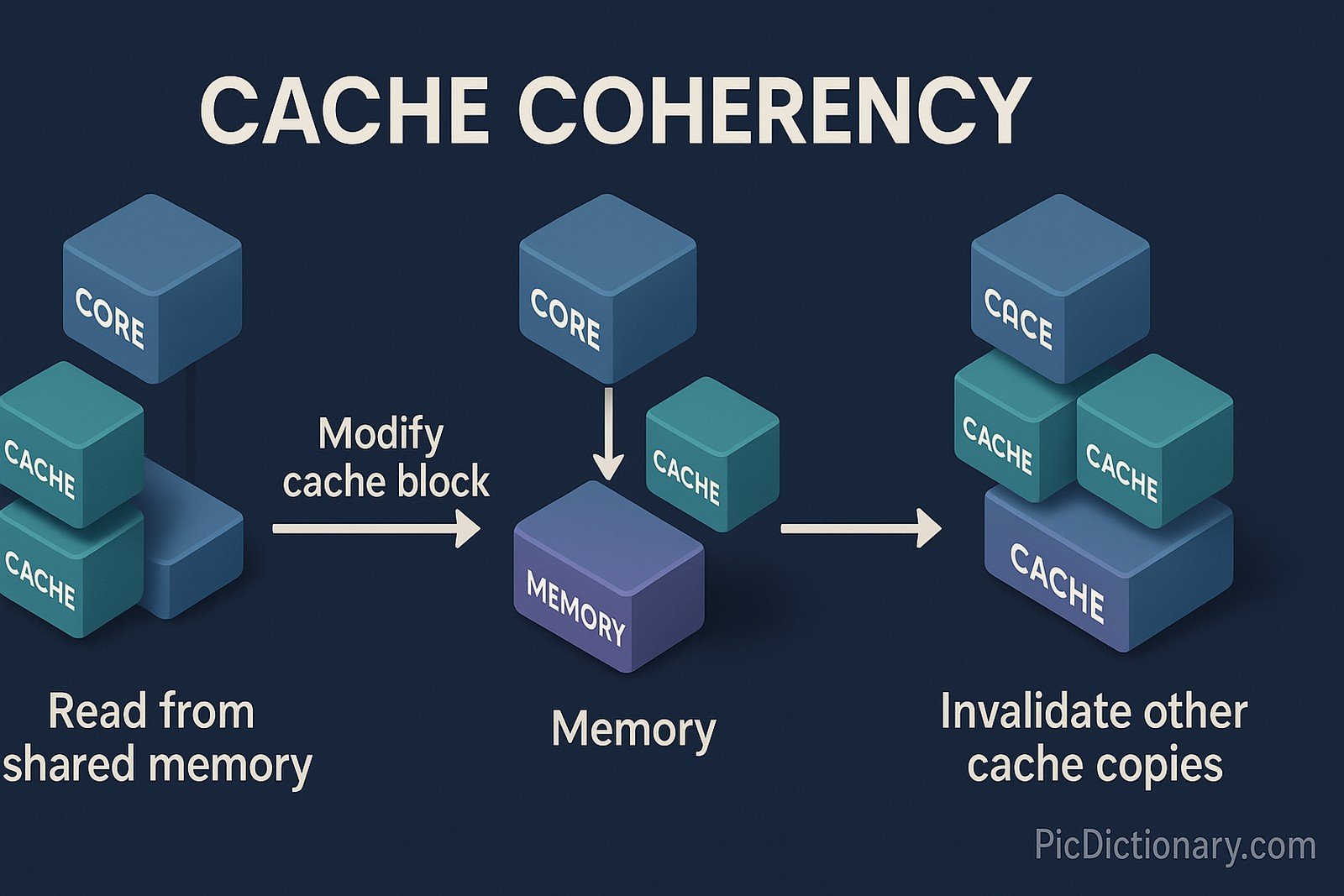Cache Coherency

Quick Navigation:
- Cache Coherency Definition
- Cache Coherency Explained Easy
- Cache Coherency Origin
- Cache Coherency Etymology
- Cache Coherency Usage Trends
- Cache Coherency Usage
- Cache Coherency Examples in Context
- Cache Coherency FAQ
- Cache Coherency Related Words
Cache Coherency Definition
Cache coherency is a mechanism that ensures data consistency across multiple cache levels in a computer system. When multiple processors or cores access shared memory, cache coherency ensures that any modification to a memory location is reflected across all caches holding copies of that data. It prevents issues like stale data and inconsistent reads. Common protocols used to maintain cache coherency include MESI (Modified, Exclusive, Shared, Invalid) and MOESI (Modified, Owned, Exclusive, Shared, Invalid), which manage cache state transitions to ensure correct data updates.
Cache Coherency Explained Easy
Imagine you and your friends are writing a story together. Each of you has a copy of the story, and whenever someone makes a change, you all need to update your copies. If one person changes the ending but doesn’t tell the others, everyone else still has the old version, leading to confusion. Cache coherency is like making sure everyone gets the latest version of the story at the same time so nobody works with outdated information.
Cache Coherency Origin
The concept of cache coherency emerged with the rise of multiprocessor systems in the 1970s and 1980s. As computing power increased and multi-core processors became standard, the need for efficient memory access and consistency between caches became critical. This led to the development of cache coherence protocols that ensure accurate data sharing among processors.
Cache Coherency Etymology
The term "cache coherency" originates from "cache," which refers to high-speed memory storage, and "coherency," meaning logical consistency. The phrase describes how cache memory remains logically consistent across a system.
Cache Coherency Usage Trends
With the increasing reliance on multi-core processors in consumer and enterprise computing, cache coherency has become more crucial than ever. The growth of parallel computing, cloud services, and AI-driven applications has made efficient memory synchronization a high priority. Advancements in processor architectures have led to more sophisticated coherence protocols to handle larger datasets and real-time computations.
Cache Coherency Usage
- Formal/Technical Tagging:
- Computer Architecture
- Parallel Computing
- Multiprocessing - Typical Collocations:
- "cache coherency protocol"
- "maintaining cache consistency"
- "MESI cache coherence"
- "multi-core processor cache"
Cache Coherency Examples in Context
- A multi-core processor uses cache coherency protocols to ensure that all cores access the latest data values.
- Without cache coherency, two processors might read different values for the same memory location, leading to errors in execution.
- Operating systems and compilers optimize memory access patterns to improve cache coherency and reduce latency.
Cache Coherency FAQ
- What is cache coherency?
Cache coherency ensures that all copies of a shared memory location across different caches remain consistent. - Why is cache coherency important in multi-core processors?
It prevents data inconsistencies when multiple cores access and modify shared memory. - How does cache coherency work?
It uses protocols like MESI to track cache states and ensure data updates are synchronized across caches. - What happens if cache coherency is not maintained?
Processors might read stale or incorrect data, causing computation errors or system failures. - What are common cache coherency protocols?
MESI, MOESI, MSI, and MESIF are widely used protocols in modern processor architectures. - How does cache coherency affect performance?
Ensuring coherency can introduce overhead, but modern CPUs use optimizations to reduce performance impact. - Can cache coherency be improved?
Yes, through optimized memory architectures, better software design, and efficient cache management. - Is cache coherency only for hardware?
No, software-level mechanisms also help manage memory consistency in distributed computing. - Does cache coherency matter in GPUs?
Yes, though GPUs often use different memory models, coherence is essential in parallel processing. - How do operating systems handle cache coherency?
OS schedulers and memory managers coordinate cache operations to ensure data consistency.

Cache Coherency Related Words
- Categories/Topics:
- Computer Architecture
- Parallel Processing
- Memory Hierarchy
- Operating Systems
Did you know?
The MESI protocol, one of the most commonly used cache coherency protocols, was first introduced in the early 1980s. Since then, it has been widely adopted in modern CPUs, helping to synchronize memory access efficiently across multiple processing units.
PicDictionary.com is an online dictionary in pictures. If you have questions or suggestions, please reach out to us on WhatsApp or Twitter.Authors | Arjun Vishnu | @ArjunAndVishnu

I am Vishnu. I like AI, Linux, Single Board Computers, and Cloud Computing. I create the web & video content, and I also write for popular websites.
My younger brother, Arjun handles image & video editing. Together, we run a YouTube Channel that's focused on reviewing gadgets and explaining technology.



Comments powered by CComment